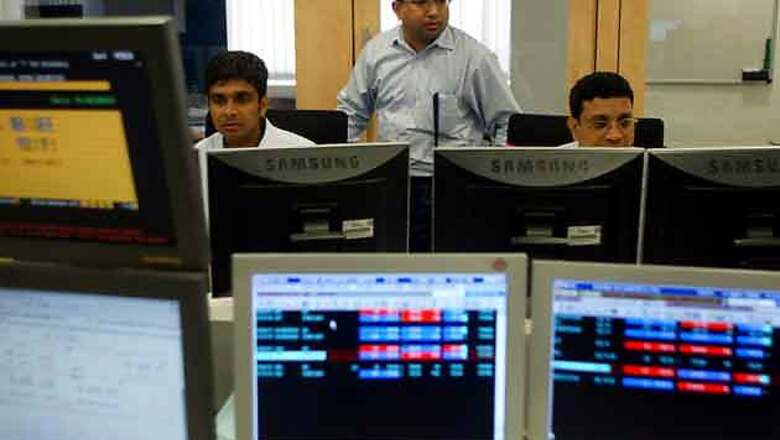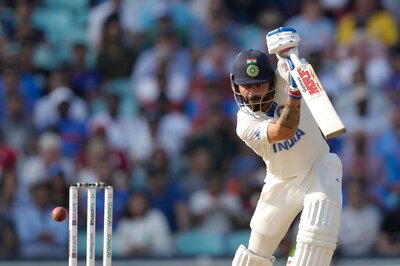
views
In the biggest single day fall ever, benchmark Sensex on Monday crashed over 1625 points to end at 25,741 amid a global rout. The Nifty index of NSE also slumped over 490 points to end at 7,809.
The market was witnessing all-round heavy selling across realty, power, oil & gas, bankex, auto, metal, capital goods and IT sectors. The 50-unit Nifty fell below the psychological 8,000-mark, while Sensex was seen moving close to 26,000.
The market breadth was pathetic as about 2477 shares declined against 318 shares advanced on the Bombay Stock Exchange. Monday's carnage wiped out more than Rs 7 lakh crore market capitalisation.
Reacting to the sharp fall in Indian markets when they opened trading on Monday, Finance Minister Arun Jaitley held "external factors" responsible for the current volatility. "Factors responsible for the market fall are entirely external, there is not a single domestic factor involved," Jaitley said."No doubt this turbulence is transient and temporary in nature and the markets will settle down once the turbulence is over," he added.
Assuring the investors in turbulent times, Reserve Bank of India (RBI) Governor Raghuram Rajan said on Monday India has sufficient foreign exchange reserves to prevent volatility in the currency market. "India has foreign exchange reserves of around $380 billion and it would be used if needed to subdue the volatility in the currency market," he said.
Not just India, alarm bells rang across world markets on Monday as a 9% dive in Chinese shares and a sharp drop in the dollar and major commodities panicked investors. European stocks opened more than 3% in the red after their Asian counterparts slumped to 3-year lows as a three month-long rout in Chinese equities threatened to get out of hand.
Safe-haven government bonds and the yen and the euro rallied as widespread fears of a China-led global economic slowdown and currency war kicked in.
With serious doubts now emerging about the likelihood of a US interest rate rise in 2015, the dollar slid against other major currencies. It was last at 120.25 yen its lowest in three months.
The Australian dollar fell to six-year lows and many emerging market currencies also plunged, whilst the frantic dash to safety pushed the euro to a 6-1/2-month high.
Commodity markets took a fresh battering. Brent and US crude oil futures hit 6-1/2-year lows as concerns about a global supply glut added to worries over potentially weaker demand from China. US crude was down 3% at $39.20 a barrel while Brent lost 2.4% to $44.40 a barrel.
The latest rout in China was rooted in investor disappointment that Beijing did not announce expected policy support over the weekend after its markets shed 11 percent last week. Compounding the real-time falls all index futures contracts slumped by their 10 per cent daily limit, pointing to more bad days ahead.




















Comments
0 comment